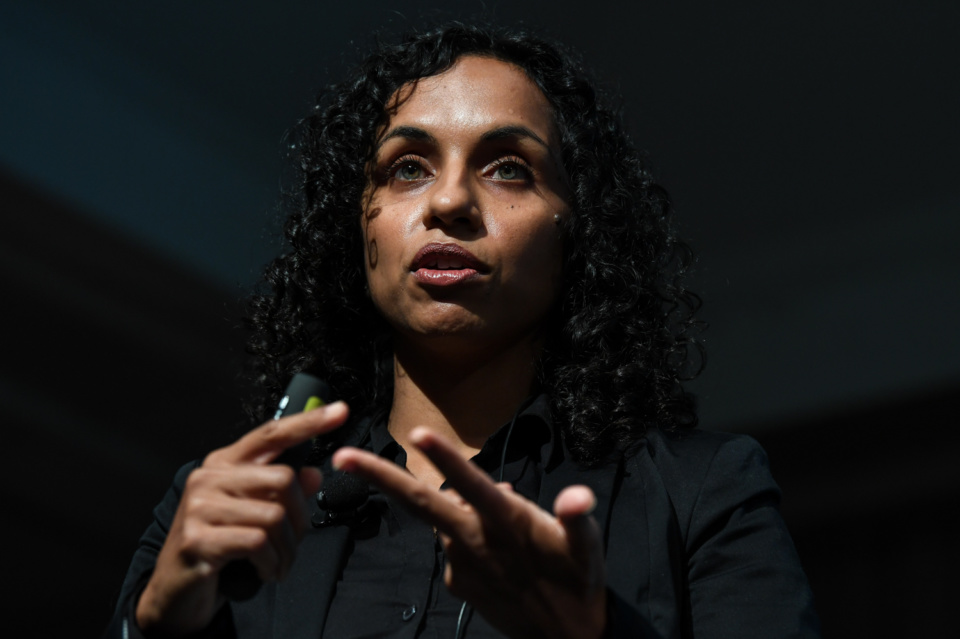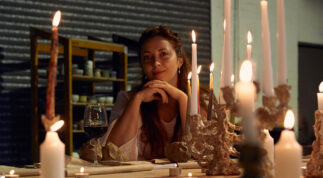Picture: Penny Stephens
I have studied women presidents and the impact female leaders have had on women’s lives through the law. It is therefore unsurprising that I am often asked, are women better leaders? Do they make a difference for fellow women? I offer a cautious yes. Yet I have come to realise that perhaps the question we need to ask is ‘how?’. The wonderful Mary Crooks AO asked that important question at the Victorian Women’s Trust’s recent event, Women Represent: Power, Politics & Making a Difference.
As a life-long activist and an academic by day, I found myself in the kind of conversation that we cannot afford not to have. Crooks brought together four great women, creating the space for a dialogue enriched by the incredible political expertise that they share across party and generational lines: Victoria’s Judith Troeth (1993-2011) who served close to three decades in the Australian Senate; the Honorable Jenny Macklin, who served twenty-three years as the federal Member for Jagajaga (1996-2019); and currently serving Samantha Ratnam, leader of the Victorian Greens and member of the Victorian Legislative Council, and Victoria’s Independent Fiona Patten. That considered and thoughtful conversation pointed to three clear answers to the question of ‘how’ women in politics have impact: being part of a critical mass; demonstrating solidarity; and having an imagination, perhaps a thirst, for a more gender equal world.
A critical mass as an essential pathway to equality
I have always held the view that getting more women into politics is key to tackling gender inequality in Australia. Clearly, this is a widely shared perspective. Troeth and Macklin both served at a time when there were far fewer women in both Houses of our national parliament. They fought for change when a critical mass of women in Australian politics was a dream, and not one within arm’s length. While Labor introduced its pre-selection quota for women in 1994, Macklin reminded us that making it a reality was not always easy. Meanwhile, despite her party’s opposition, Troeth has bravely and vocally maintained the view that the Liberal Party should introduce quotas to rectify its abysmally low numbers of women.
There is plenty of evidence to show why we should be doing all we can to increase the number of women candidates and incumbents. When women form a critical mass – including when senior women politicians support younger generations of women up the political ladder – we have (quite literally) more legs to stand on during politically turbulent times.
With such a critical mass, the mistakes of women politicians – and we all make mistakes – are less likely to be felt by all women. We can also hope that by getting to parity, it will be easier for women working in politics, including both women politicians and their staffers, to call out harmful and unsafe practices. There would be a mass of women, and fellow men, to stand in support.
Critical mass can also enable gender-responsive law and policy-making. For Ratnam, being surrounded by other women enabled a more nuanced debate over how to address women’s lack of safety and security in Merri-bek City Council when all sights were set on spending money on CCTV cameras alone, when a much more comprehensive approach was needed.
Solidarity for law reform
Solidarity among women may be women’s greatest asset in advancing the type of law reform needed to correct generations of discrimination suffered by a diversity of Australian women. Macklin was the steward behind fundamental law reform under the Rudd and Gillard Labor governments. Macklin is able to acknowledge the multiple and diverse actors that had to come together for Australia to finally introduce the country’s first paid parental leave scheme and the National Disability Insurance Scheme, neither perfect but both essential for improving the socio-economic realities of Australian women.
Troeth, with other female Senators of her times (the Democrat’s Lyn Allison, Labor’s Clare Moore and the National’s Fiona Nash), crossed party lines to secure for Australian women access to Mifepristone, or RU486. This act of solidarity, remarkable for its cross-party nature, called for RU486 to be approved by the Therapeutic Drugs Administration and not by ministerial purview and would change the lives of countless Australian women who would be able to have Mifepristone as an alternative to surgery in the early weeks of pregnancy.
A bigger calling
Politics is, or should be, only for those passionately pursuing a better Australia. Today Macklin is one of twelve eminent women to sit on the Albanese government’s inaugural Women’s Economic Equality Taskforce. That taskforce will revisit the paid parental leave scheme that Macklin envisaged during her life in politics, reminding us what a life-long dedication to a more gender equal Australia actually looks like. It is a capacity to acknowledge what may not have been achieved in the past and the ability to continue to pursue a political future that is willing to do more.
Ratnam and Patten imagine a more diverse political future for Australia. Such gender, ethnic and socio-economic diversity would not only make the Australian state and federal parliaments more representative of Australia’s demographic make-up but may also make politics more inviting for a greater diversity of women.
Perhaps above all, this conversation – evidence-based, respectful and diverse – illustrates the different type of leadership model that women offer when women occupy decision-making roles. It was an honour to have been a part of it. My gratitude to Mary Crooks, my co-panellists and all the audience for their insightful comments and questions.
 Ramona Vijeyarasa is an activist and scholar of gender equality. She is the author of The Woman President: Leadership, law and legacy for women based on experiences from South and Southeast Asia
Ramona Vijeyarasa is an activist and scholar of gender equality. She is the author of The Woman President: Leadership, law and legacy for women based on experiences from South and Southeast Asia



